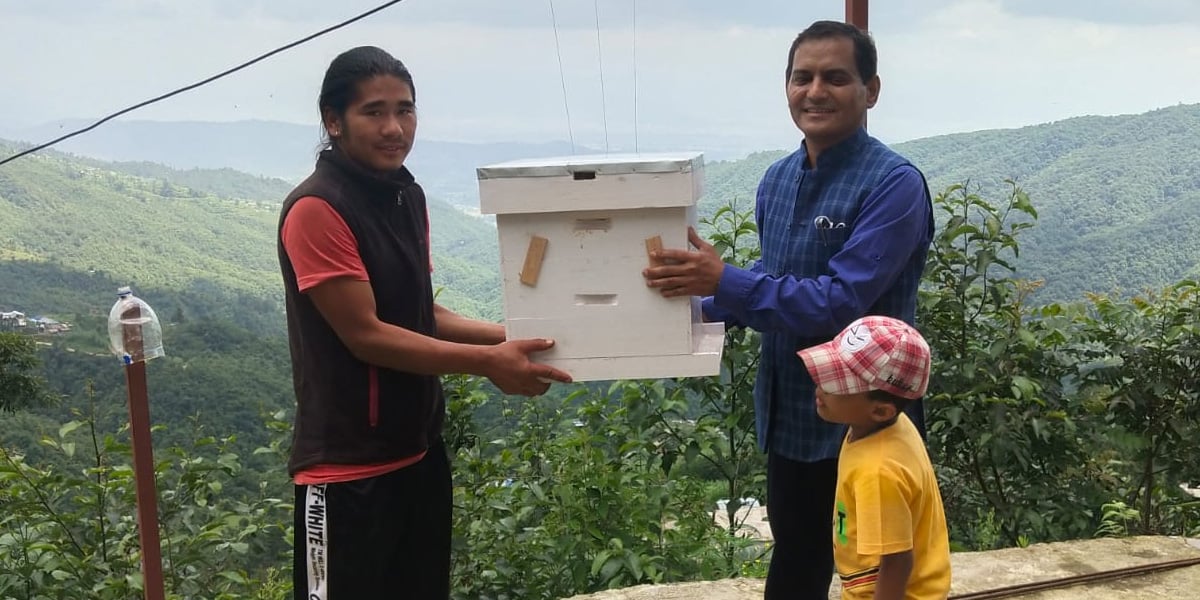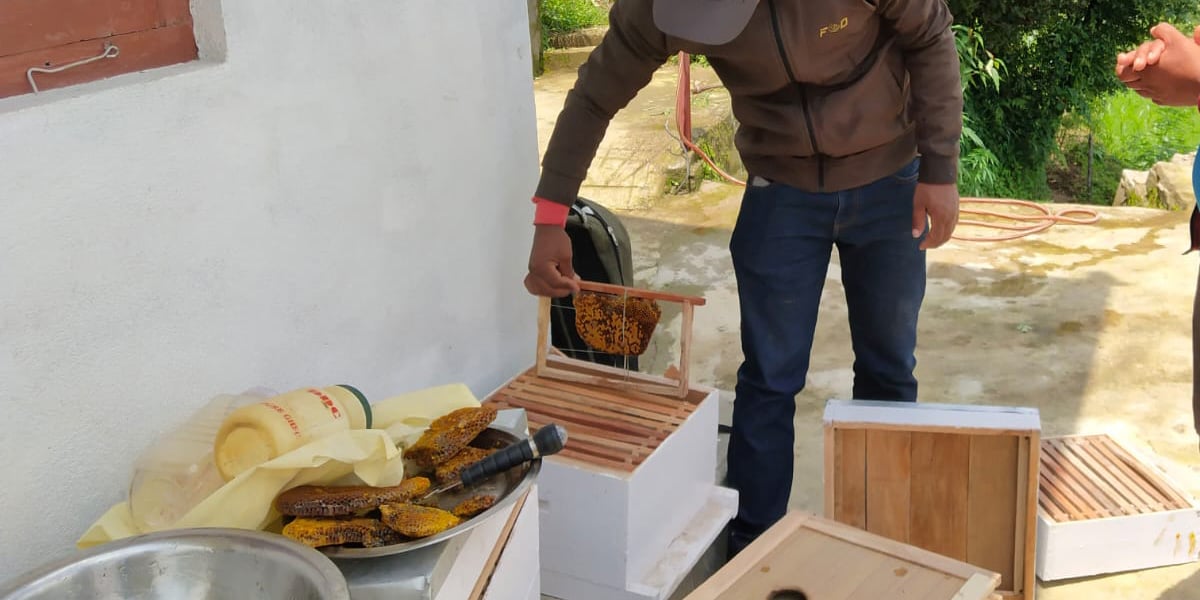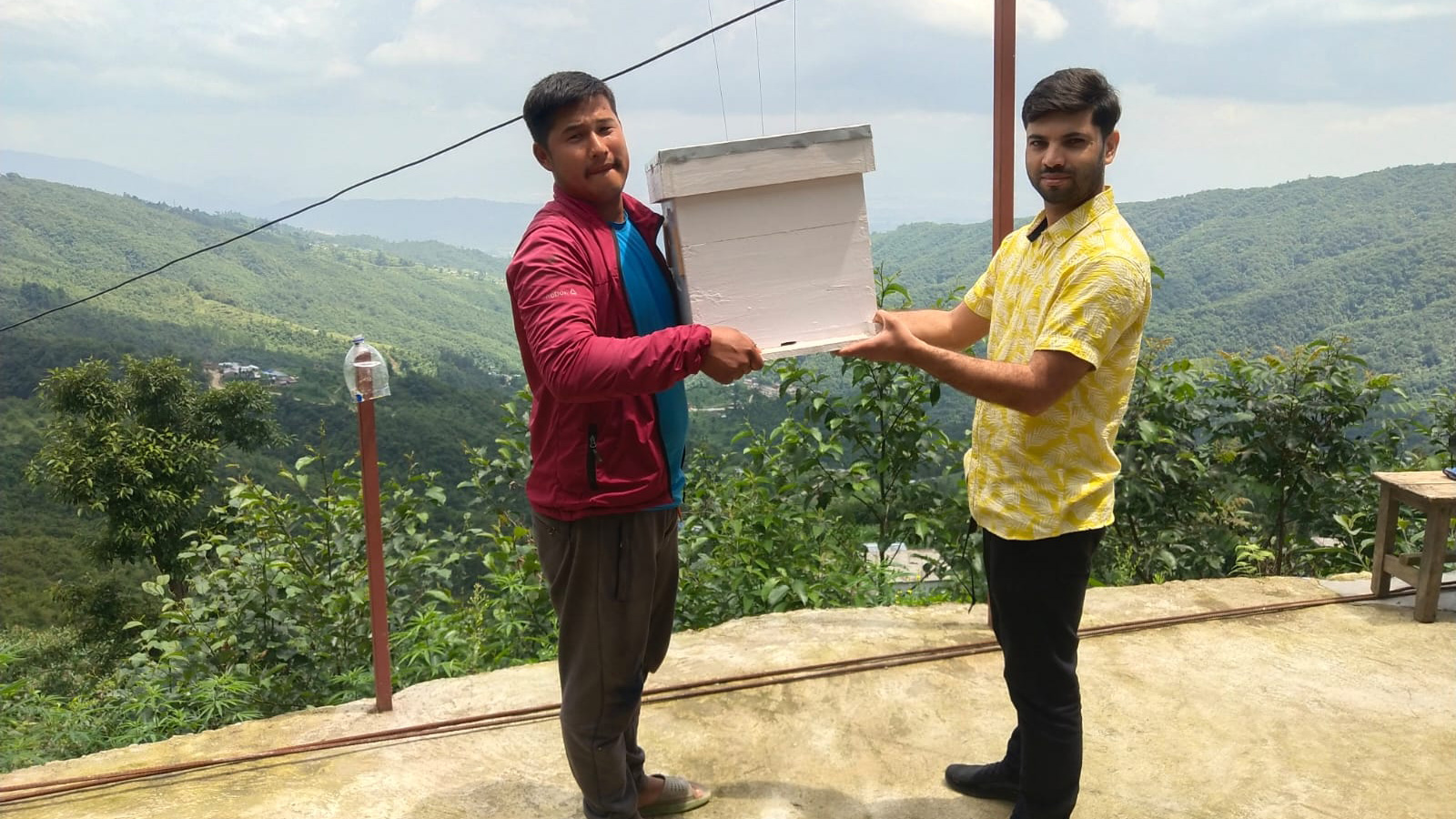The bees and Milgro are inextricably linked. The bee is part of our logo and since 2020 we also have a beehive in Nepal. With this we are committed to biodiversity and nature management.
Ambassador of the bee
For us, sponsoring a beehive is a logical step. We have the same goal: a sustainable and circular world. The bee is the connector between ecosystems and Milgro is the connector between the receiver and disposer of waste streams. We both make the world a bit more sustainable.
Bees are important for biodiversity
Bees are essential to our human nature, and with the sponsorship of a hive, we are committed to the well-being of the bee. Biodiversity is important to humans. It is, in the last few years, quite comfortable. Bees help in the preservation of biodiversity and bringing it back in. In addition, they do our food supply. Bees pollinate 90 percent of all the crops, and up to 60 per cent of our food is dependent on pollination. Due to the pollination of bees, a better ecological balance in the nature. Bee hives and bring the bees back, so that there will be more pollination takes place.

Our hive in Nepal
Our hive is located in the town of Gokarneshwor in Nepal. The situation has changed there since 2015. Then the country was hit by a severe earthquake that had major consequences for the country and untouched nature. This has seriously affected both biodiversity and the economy. By sponsoring a beehive, we stimulate biodiversity and the economy in Nepal.
About Liquid Nature
Liquid Natureis the manager of our beehive. By placing beehives in countries such as Nepal, Vietnam, Zimbabwe, Kenya and Sri Lanka, they contribute to the restoration of biodiversity and economic growth in places where this is needed. For every sponsored hive in the Netherlands, one is placed in another country. In addition, local beekeepers are trained and receive a beekeeper's outfit and tools.

What is different in Nepal?
In Nepal, a beekeeper uses different materials than in the Netherlands. But especially the approach differs. In the Netherlands, one person is responsible for maintaining the beehive. In Nepal, the entire community maintains the beehive. The community shares the proceeds of the honey with each other. The bees in Nepal are also different from the bees in the Netherlands. For example, the apis serena and the apis dorsata, one of the largest bees in the world, can be found in Nepal. The honey also has a different taste, because other plants and flowers occur in Nepal.
The beehive is a community project. Here is an explanation of which parts a beehive consists of.









